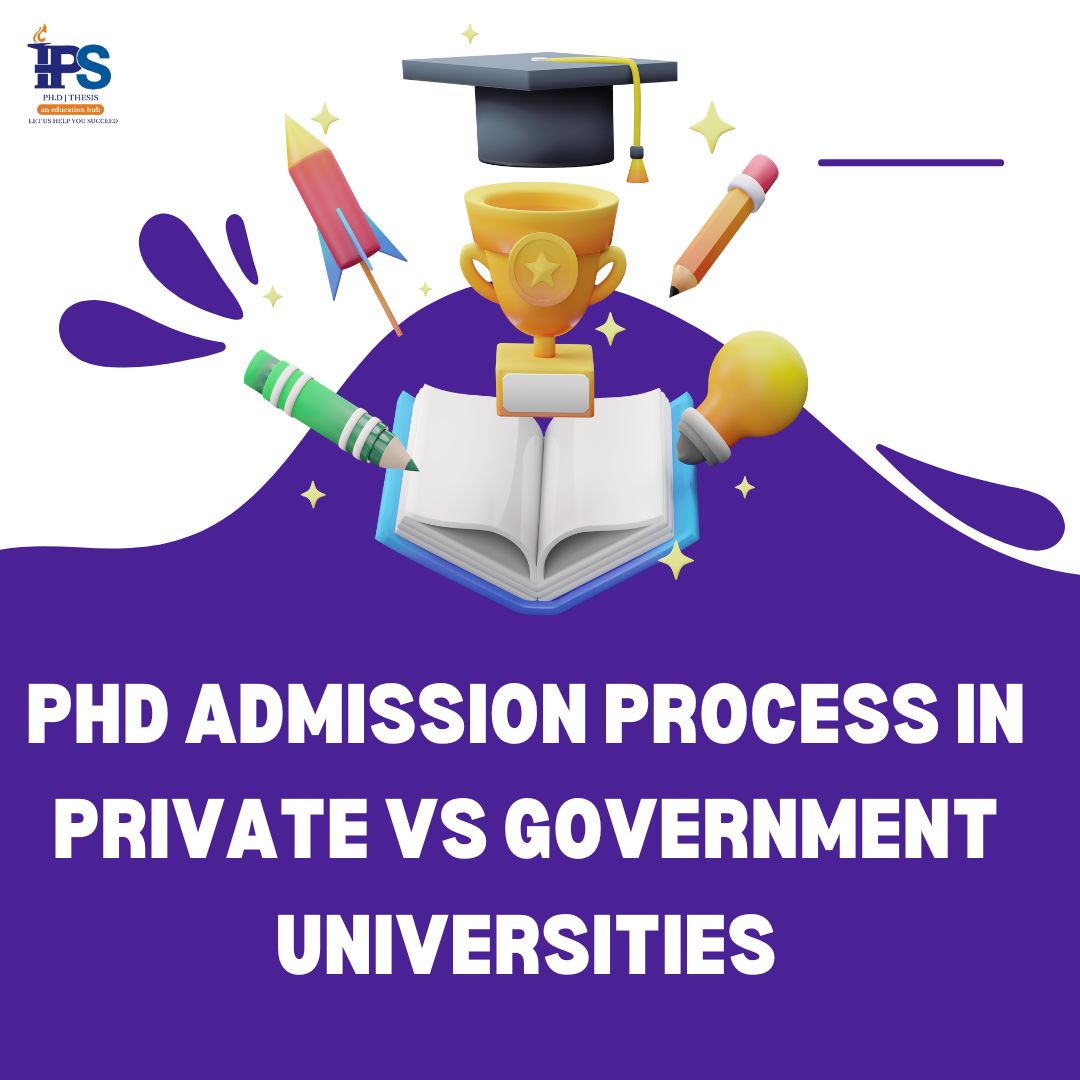
PhD Admission Process in Private vs Government Universities
Embarking on a PhD journey is a monumental step for aspiring scholars and researchers seeking to take their academic endeavours to new heights. Data until October 2023. Info: Understand the process of PhD Admission in order to select the university that is favourable (Private or government). These types of institutions have different admission processes, eligibility requirements, and advantages. Full process of PhD admission. That is why, in this article, we will be discussing the Process of PhD Admission in Private vs Government Universities, along with the PhD Admission Process in Private vs Government Universities.
Key Differences Between PhD Admission Processes in Private & Government Institutes?
In India, the admission procedure for PhD programs differs greatly between private and government universities. Although both of them require candidates to fulfil certain eligibility criteria, selection procedures, fee structures, and research opportunities vary.
1. Eligibility Criteria
Government Universities: A post-graduate degree (Master’s) with at least eg 55%) percentage. For most of the government universities, the candidates have to qualify for the National Eligibility Test (NET) or the university-specific entrance test.
Private Universities: Private universities have similar eligibility criteria; however, most private universities also offer better flexibility in minimum percentage and entrance exams. A few institutions take their entrance tests, while others offer admission on a merit basis.
2. Entrance Exam Requirements
Government Universities: NET, GATE, JRF or individual entrance tests of universities. Some institutes even invite personal interviews & presentations of research proposals.
Private universities: Some have entrance exams, while most offer direct admission based on your academic history and professional experience.
3. Admission Procedure
The PhD admission process in private vs government universities follows different steps:
Government Universities:
- Appear for NET, GATE, or a university entrance exam.
- Apply through the university's PhD portal with academic details.
- Attend a personal interview and submit a research proposal.
- Selection is based on entrance exam scores, interviews, and proposal evaluation.
- Once selected, complete the registration and begin coursework.
Private Universities:
- Some universities accept direct applications based on academic merit.
- Appear for the university’s PhD entrance test (if required).
- Attend an interview and present a research proposal.
- Get selected based on academic performance, entrance test (if applicable), and proposal evaluation.
- Complete the enrollment and start coursework.
4. Fee Structure
Government Universities: A government university does not charge very high fees for PhD, only a raw amount as they get government funding. Research scholars can also receive financial support through scholarships such as UGC NET JRF or university fellowships.
Private Universities: The fee structure in private universities is hefty. Nevertheless, you could receive a scholarship, research grant, or financial aid from private universities based on your ability.
5. Research Facilities & Funding
This is followed by a set of good university colleges, often operating under government universities, which typically have established research labs, funding from government bodies, and access to national and international research collaborations.
Private Universities: Several private universities are in the process of creating world-class research institutions. However, we may have limited funding opportunities compared to the government universities.
6. Faculty & Guidance
Government Universities: Experienced faculty members, often with strong research backgrounds. However, guidance availability may be limited due to a high number of students.
Private Universities: Faculty-student ratios are better, ensuring more personalised guidance. However, faculty research experience may vary.
7. Duration & Flexibility
Government Universities: Typically follow strict academic timelines, with a PhD duration of 3-5 years. Extensions are granted only under special circumstances.
Private Universities: They offer more flexibility, particularly for working professionals pursuing a PhD part-time. The duration can be similar to government universities, but some private institutions may allow extensions more easily.
8. Job Opportunities & Recognition
Government Universities: PhD from reputed government universities are highly recognised in academia and research institutions. Graduates often get priority for faculty positions in government colleges and universities.
Private Universities: Recognition depends on the university’s reputation and accreditation. Graduates may need to prove research quality to compete for academic positions. However, private university PhD holders often find better opportunities in corporate research roles.
Which is Better – Private or Government Universities for a PhD?
Choosing between a private and a government university depends on individual preferences, career goals, and financial considerations
Choose a Government University if:
- You want a low-cost PhD with high academic recognition.
- You are ready to qualify for NET/GATE or other entrance exams.
- You seek research funding, scholarships, and government fellowships.
- You aim for a career in academia or research institutions
Choose a Private University if:
- You prefer a more flexible admission process with fewer entrance exam requirements.
- You can afford higher fees or secure financial aid from the university.
- You want personalised guidance and better faculty-student interaction.
- You are looking for corporate research roles or industry-linked PhD programs.
Conclusion:
Weighing the Pros and Cons of the PhD admission process in private and government universities. The affordability is offered by government universities, whereas academic credibility, along with research funding, is offered by them as well, followed by the flexibility, better guidance, and industry exposure offered by private universities. Choose the option that best fits your career objectives, research interests and financial capacity. For all of your expert support of in choosing the most suitable program for the PhD, IPS Edu Hub will assist you throughout the admission process





